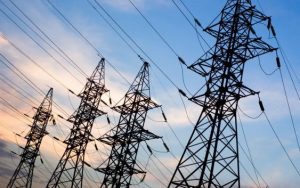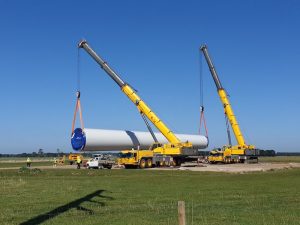Australian fossil fuel subsidies will top $11.6 billion this financial year, with new analysis shedding light on the extent to which both federal and state governments are actively supporting the continued expansion of the fossil fuel industry.
New analysis, published by The Australia Institute on Monday, has estimated that fossil fuel subsidies increased by 12 per cent in the last year – a $1.3 billion increase – driven higher by the Morrison government’s ‘gas-fired recovery’.
It sees the value of government fossil fuel subsidies significantly exceed the funding committed to emergency response measures and dwarfs the funding provided to the National Recovery and Resilience Agency.
Research director at the think tank, Rod Campbell, described the subsidies of fossil fuel use and production as “perverse”, at a time when a growing number of Australian communities are being devastated by climate-change fuelled disasters like flooding and bushfires.
“This is bad economics and even worse climate policy. We are witnessing Australia’s flood-stricken communities trying to pick up the pieces while fossil fuel interests are cashing in the tune of over $22,000 a minute,” Campbell said.
“Worse still, these subsidies are growing and show no sign of slowing down. It is the Federal Government driving increases in fossil fuel subsidies, with $6.7 billion worth of new measures committed since the 2019 election.”
The analysis suggests that beyond the fuel tax credits, the subsidies were shared across the fossil fuel industry, with $770 million directed towards the coal sector and $976 million provided to the oil and gas sector.
The biggest single source of fossil fuel subsidy continues to be the federal government’s Fuel Tax Credits Scheme, which delivers an $8 billion refund in fuel tax to a range of mining and agricultural fuel consumers. This amount exceeds the $7.5 billion annual budget for the Australian Army.
The tax refund is provided to fuel users who operate vehicles on non-public roads, and primarily benefits mining companies. Around half of the $3.2 billion in fuel tax refunds provided to mining companies in the 2018-19 financial year were received by fossil fuel companies.
Federal subsidies provided beyond the Fuel Tax Credits Scheme increased four-hold in the current financial year, exceeding more than $1.1 billion, as the Morrison government funded the expansion of the fossil fuel industry as part of its ‘gas led recovery’.
Other major subsidies include $200 million spent by the federal government on the construction of a new gas-fired power station at Kurri Kurri, and $175 million in subsidies provided through concessional finance for the Olive Downs coal mine.
The Northern Territory was the latest provider of subsidies of any state or territory government, pouring $720 million into new infrastructure for the gas industry and $400 million for the commissioning of new shipping infrastructure to aid the export of oil and gas.
The analysis found that the Tasmanian or ACT governments provided no fossil fuel subsidies.

Campbell said the subsidies formed a central part of the Morrison government’s energy policies, at time when there is growing pressure on the government, both locally and internationally, to ramp up decarbonisation efforts.
“The big increases are not hidden, but are central government policies such as the ‘gas-fired recovery’ and more money for ever-failing technologies like carbon capture and storage,” Campbell said.
“It is long past time for these irresponsible budget measures to be reversed and these resources directed to combating climate change and preparing Australians for its consequences.”
The Morrison government has continued to commit public funds towards the expansion of the gas industry, including a recent allocation of more than $50 million in additional subsidies to fund the construction of new gas projects and pipelines.





